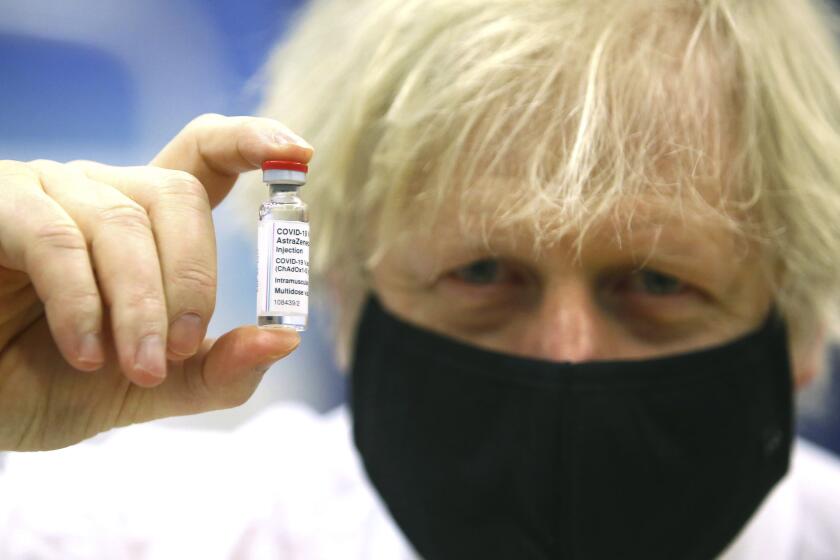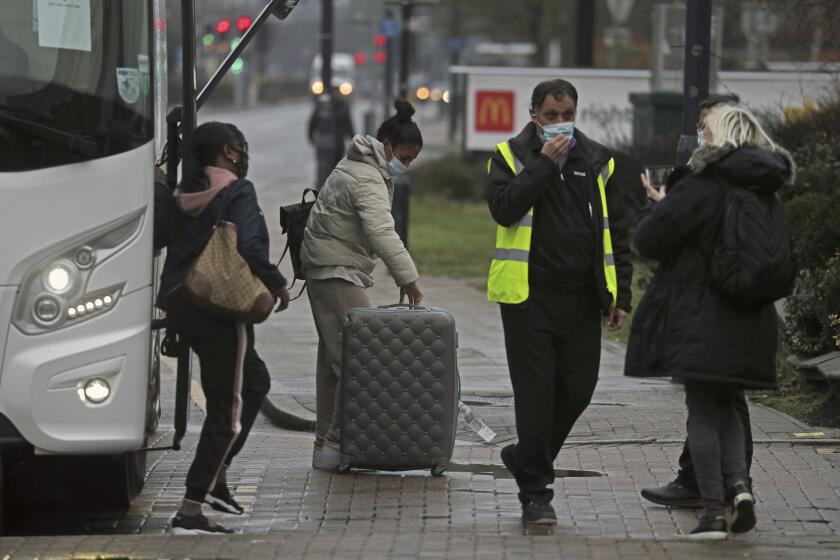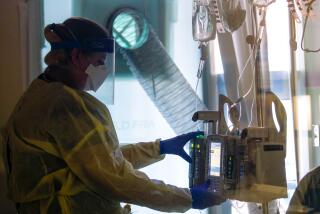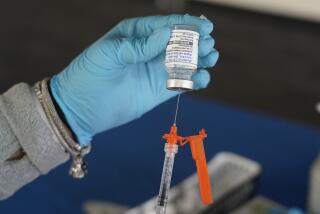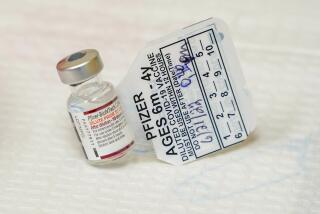In sign of real-world impact, COVID shots spark steep drop in hospitalizations in Scotland
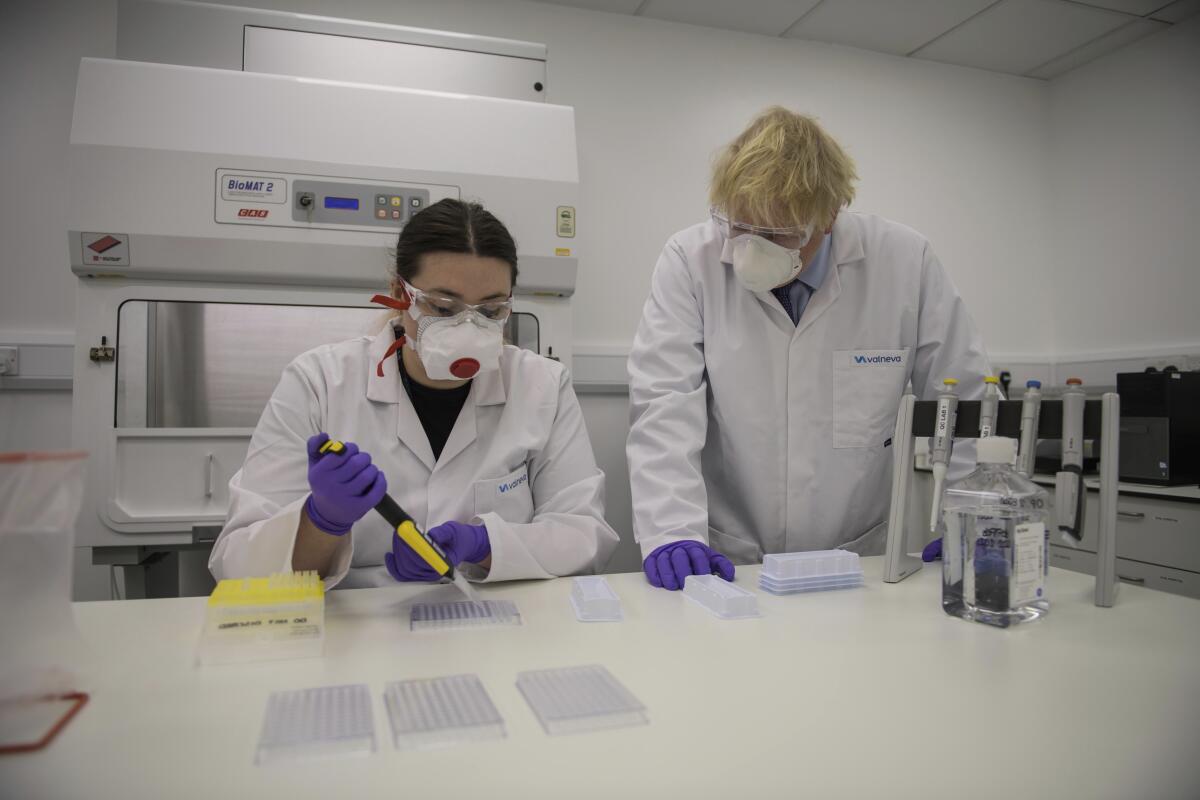
LONDON — Scotland’s COVID-19 vaccination program has led to a sharp drop in hospitalizations, researchers said Monday, offering some initial evidence of the shots’ beneficial impact in the real world rather than only in carefully controlled studies.
The vaccine developed by AstraZeneca and Oxford University reduced hospital admissions for COVID-19 by up to 94% four weeks after people received their first dose, while the Pfizer-BioNTech vaccine cut admissions by up to 85%, according to scientists at the University of Edinburgh, the University of Strathclyde and Public Health Scotland.
The preliminary findings were based on a comparison of people who had received one dose of a COVID-19 vaccine and those who hadn’t been inoculated yet. The data were gathered between Dec. 8 and Feb. 15, a period when 21% of Scotland’s population received their first vaccine shot.
“These results are very encouraging and have given us great reasons to be optimistic for the future,” said Aziz Sheikh, director of the University of Edinburgh’s Usher Institute. “We now have national evidence — across an entire country — that vaccination provides protection against COVID-19 hospitalizations.”
About 650,000 people in Scotland received the Pfizer vaccine during the study period and 490,000 had the AstraZeneca shot, according to the Usher Institute. Because hospitalization data were collected 28 days after inoculation, the findings on hospital admissions were based on a subset of 220,000 people who received the Pfizer vaccine and 45,000 who got the AstraZeneca shot.
British regulators authorized widespread use of the AstraZeneca vaccine Dec. 30, almost a month after they gave the green light for use of the Pfizer vaccine.
The British government says it aims to give every adult in the country a COVID-19 shot by July 31, at least a month earlier than its previous target.
Outside experts said while the findings are encouraging, they should be interpreted with caution because of the nature of this kind of observational study. In particular, relatively few people overall were hospitalized for COVID-19 after receiving the vaccinations during the study period.
Stephen Evans, a professor of pharmacoepidemiology at the London School of Hygiene & Tropical Medicine, urged those making political decisions about the pandemic to be cautious.
“It will be important that euphoria, especially from political sources that do not understand the uncertainty in the numerical values, does not cause premature decisions to be made,” he said “Cautious optimism is justified.”
Earlier this month, Israel reported encouraging results from people receiving the Pfizer vaccine. Six weeks after vaccinations began for people over 60, there was a 41% drop in confirmed COVID-19 infections and a 31% decline in hospitalizations, according the country’s Ministry of Health.
Britain’s newly established quarantine hotels receive their first guests as the government tries to keep variants from derailing its vaccination drive.
The findings out of Scotland came Monday as British Prime Minister Boris Johnson announced a slow easing of one of Europe’s strictest coronavirus lockdowns. Under the liberalization plan, children will return to class and people will be able to meet a friend outside for coffee in two weeks’ time.
But those longing for a haircut, a restaurant meal, a workout at the gym or a pint in a pub have almost two months to wait, and people won’t be able to hug loved ones whom they don’t live with until May at the earliest.
Johnson said the government’s plan would move the country “cautiously but irreversibly” out of lockdown.
Britain has had Europe’s deadliest coronavirus outbreak, with more than 120,000 deaths.
More to Read
Sign up for Essential California
The most important California stories and recommendations in your inbox every morning.
You may occasionally receive promotional content from the Los Angeles Times.
